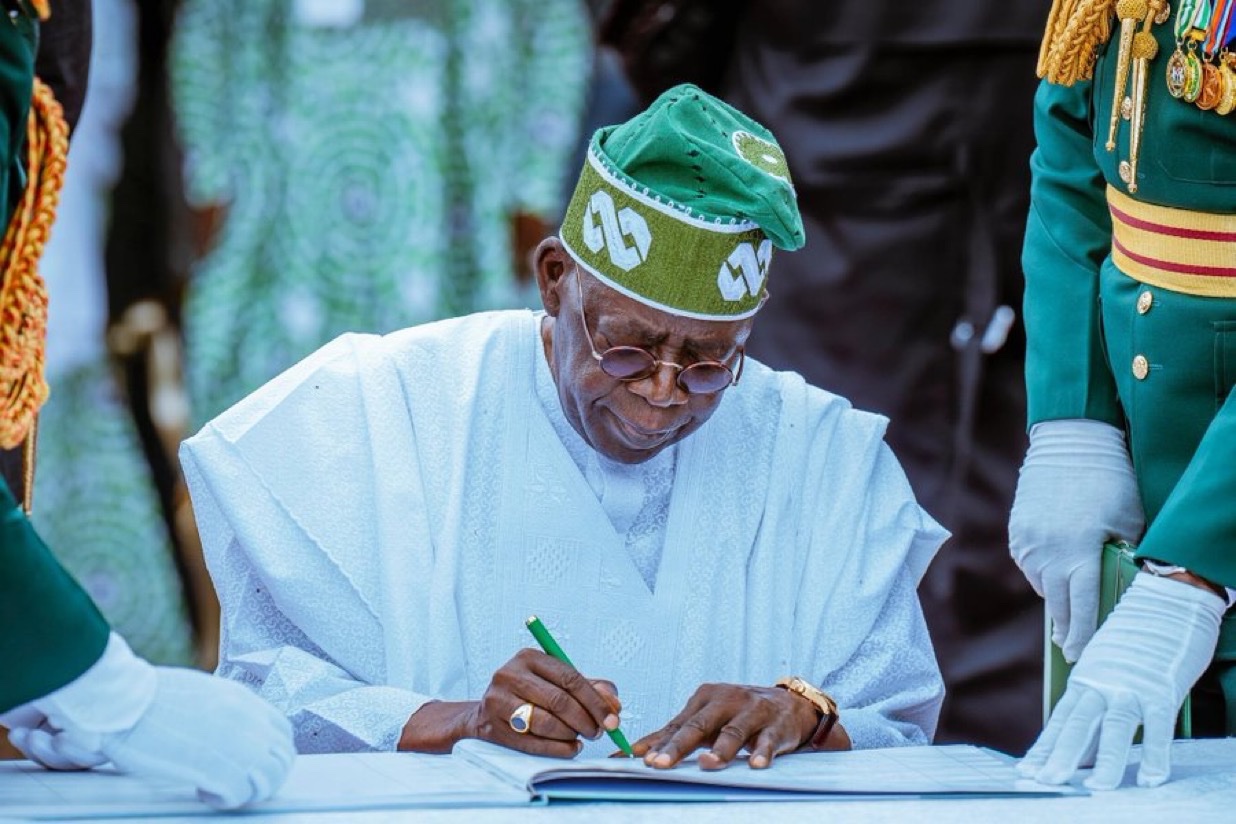Nigeria’s Total Public Debt May Rise to N193tn as Tinubu Seeks Fresh Loans

Nigeria’s total public debt could rise by about N40.61 trillion to N193 trillion if all loan requests made by President Bola Tinubu in 2025 are approved and fully disbursed, according to an analysis by The PUNCH. The requests represent approximately 26.6% of Nigeria’s existing debt stock as of June 2025, coming amid mounting fiscal pressures and increasing foreign-currency exposure. Figures from the Debt Management Office (DMO) show that as of June 30, 2025, Nigeria’s total public debt stood at N152.4 trillion, comprising N71.85 trillion in external debt and N80.55 trillion in domestic debt, calculated at an exchange rate of N1,529.21/$1. Using the Central Bank of Nigeria’s November 10, 2025 official rates—N1,437.29 per dollar, N1,662.66 per euro, and N9.33 per yen—The PUNCH projected that Tinubu’s 2025 loan pipeline could lift total debt to about N193.01 trillion, equivalent to $134.3 billion at current rates. This would push Nigeria’s external debt component above 57% of the total, increasing the country’s foreign exposure.
At least three major loan requests have been made by President Tinubu this year. In May 2025, he sought National Assembly approval for a $21.5 billion external loan package, €2.19 billion, and ¥15 billion, alongside a N758 billion domestic bond to fund the 2025–2026 borrowing plan, infrastructure projects, and pension liabilities. “In light of the significant infrastructure deficit and paucity of resources, it has become essential to pursue prudent borrowing to close the financial shortfall,” Tinubu said in his letter to lawmakers. The Senate approved the request in July after the presentation of a report by the Committee on Local and Foreign Debt chaired by Senator Aliyu Wamako.
Senator Olamilekan Adeola, Chairman of the Appropriations Committee, said the borrowing was already embedded in the 2025 budget framework, while Senator Sani Musa of the Finance Committee defended the move as consistent with global economic norms. “There’s no economy that grows without borrowing,” Musa said. Similarly, Senator Adetokunbo Abiru, who chairs the Banking Committee, assured that the loans are concessional, long-term, and tied to capital projects. However, Senator Abdul Ningi (Bauchi Central) expressed concern over transparency and equitable allocation, urging the government to disclose detailed utilisation plans.
In October, Tinubu sent another letter seeking $2.3 billion in external loans and a $500 million debut sovereign sukuk to help finance the 2025 budget deficit and refinance maturing Eurobonds. The National Assembly approved the request on October 29, bringing total external borrowing this year to about $24.8 billion. Defending the proposal, Senator Adams Oshiomhole argued that properly structured loans could stimulate growth and create jobs.
A third request, submitted in November, sought approval for N1.15 trillion in domestic borrowing to close the gap in the N59.9 trillion 2025 budget and settle outstanding contractor payments. Tinubu said the funds would ensure the “full implementation of government programmes and projects” under the fiscal plan.
If all requests are executed, Nigeria’s total debt would increase from N152.40 trillion in mid-2025 to about N193.01 trillion. External obligations would grow by N39.6 trillion to N111.45 trillion, while domestic debt would rise by about N1 trillion to N81.56 trillion.
Between June 2023 and June 2025, Nigeria’s total public debt grew by N65 trillion, a 74.4% jump from N87.38 trillion, driven mainly by exchange rate depreciation following the naira unification policy. External debt rose modestly in dollar terms—from $43.16 billion to $46.98 billion—but doubled in naira value due to the weakening exchange rate. Domestic debt also increased by N26.4 trillion, reflecting continued borrowing and the securitisation of the Central Bank’s N22.7 trillion overdraft.
DMO Director-General Patience Oniha maintains that Nigeria’s debt remains sustainable, with a debt-to-GDP ratio of about 40%, below the international benchmark of 70%. However, analysts have warned that while new loans may fund infrastructure and stabilise the budget, the nation’s debt service-to-revenue ratio, among the highest in Africa, poses a growing threat to fiscal stability.
Dr. Muda Yusuf, CEO of the Centre for the Promotion of Private Enterprise, cautioned that Nigeria’s debt service burden is already outpacing capital expenditure, urging stronger revenue mobilisation and spending discipline. “Debt service is already far more than capital spending. We need to tread cautiously,” he said.
Vahyala Kwaga, Deputy Country Director of BudgIT, warned that the government risks breaching its debt threshold and called for greater transparency in how loans are managed. Likewise, Auwal Rafsanjani, Executive Director of the Civil Society Legislative Advocacy Centre, criticised the continued borrowing without accountability, alleging that “previous loans, including the $3.4bn IMF facility, remain unaccounted for.”
Emmanuel Onwubiko, National Coordinator of the Human Rights Writers Association of Nigeria, described the President’s borrowing spree as reckless and damaging. “There is no valid reason why the president wants to drag the country into these debts,” he said, blaming both the executive and legislature for pushing Nigeria toward a “bottomless pit of foreign loans.”



